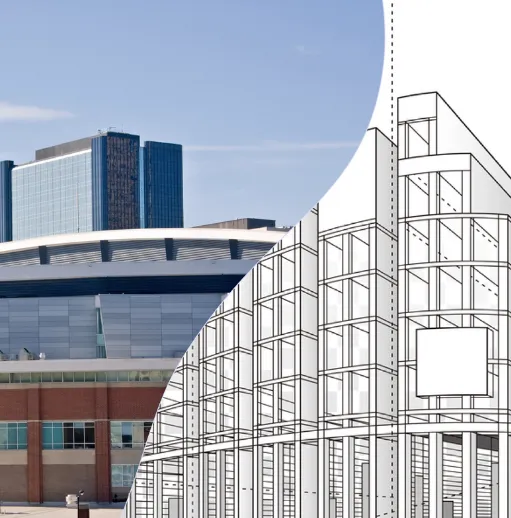
Getting a new business venture off the ground is hard. It goes beyond having a great idea—it’s about getting an idea to work practically. Countless headwinds buffet startups and small businesses, forcing them to run lean until they finally break even or reach a stable plateau.
These early periods are the most crucial, which requires balancing needs and wants with costs and savings. Computerized systems are great for these tasks, but do you need facilities management software for small business?
The benefits of facilities management software are well-known for larger companies. However, many small businesses don’t feel like they can reap the same value. They see facilities management as an expense and less of a need. What many small businesses don’t realize is that facilities management software can be pivotal in helping them break even or more quickly reach stability. Sure it’s an expense, but it’s often a valuable one.
Conserve costs without cutting corners
Facilities represent one of the largest costs on any company’s balance sheet—second only to employees. For many startups, it’s the burden of launching and growing the business. You need space to succeed. Instead of working in a broom closet to build your venture, small business facility management software helps maximize the value of more accommodating space.
Taking on the burden of a lease becomes justified if that space allows you to generate increased revenue. It even works inversely—realizing you only need a set amount of space to shave costs off a lease without disrupting business growth. For small and growing businesses, maximizing facilities makes every dollar count.
Asset management from the get-go
Part of facility management for small businesses is asset oversight. Capital investments put major strain on growing companies, which makes managing them crucial from the start. Facility management software with a Computerized Maintenance Management System (CMMS) function is especially useful.
Take an injection molding company, for example. The company may rent mixed-use office and warehouse space to house two $30,000 injection molding machines. Facility management software not only helps business leaders maximize the space they rent, it supports the placement, maintenance, and management of its $60,000 capital investment. Support ticketing or asset management records available through the software help ensure business runs smoothly, so the machines continue to bring in revenue.
Delegate duties and streamline tasks
There’s a lot that goes into maintaining and managing facilities. Facilities management for small business may not be any one person’s responsibility. If multiple people have diverse responsibilities, the company needs a centralized way to coordinate tasks. Facility management software provides a baseline.
Facility management software connects the various duties of workplace upkeep and optimization to the many people overseeing them. Assign Task A to Person 1, Task B to Person 2, and so on, with tracking that informs everyone of what’s happening. It also brings transparency to the process. If Person C handles facility maintenance, there’s no confusion about to whom to report problems. The coordinated effort of facility management helps the business grow, no matter how many people are involved.
Facility management software supports the startup and small business mantra of “all hands on deck” to keep the company growing.
Plan for growth and changes
Like a child, small businesses have a tendency to outgrow themselves faster than you can keep up with. It’s not long before your 8-month-old is in 12-month-old clothing, then just as quickly in 16-month-old sizes. It’s why parents plan ahead, making the most of what they have before they need to spend more money on the next baby wardrobe.
For growing businesses, space planning is much the same way. You need to maximize facilities and keep costs low for as long as possible, until an upgrade is necessary. Facility management software helps thriving companies gauge their current space, so they know when they’ve outgrown it—and see what their demands have grown into.
How much more square footage does your business need? Do you need a building with a loading dock? What kind of lease can you afford? Every growing business will ask itself similar questions. Having the answers prompts strategic action, enabling continued growth.
Is facility management software necessary? Absolutely!
Making smart decisions at the earliest stages of a startup or growing company yields positive effects as the business matures. While it might not seem like a necessary investment early on, facility management software could turn out to be one of the best. The ability to chart the course of company growth, plan and adapt to changes, and conserve costs more than justify the expense. They position a growing business in-the-know at a crucial stage in its fledgling success. Managing facilities is a gateway to managing scale and growth, which drives each new phase of business success.
Keep reading: Measuring Facility Management Software ROI.


